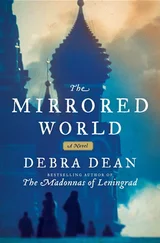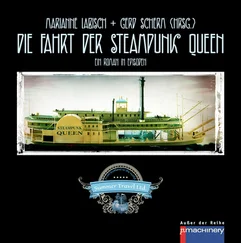Distressed by the dark turn of her own thoughts, she raised her head, eyes and nose drinking in the Vecchio streets. At least confined to the ghettos from dusk to dawn, locked in by the government, they were safer from those who hated the Jews of Venice. Margarita shook her head, as if to force the thoughts away, focusing on her task. Across the streets, away from the canals, the scents of unfamiliar spices would weave across the air, scents that grew stronger, even in the slowly worsening rainfall, when she approached the home of the trader Isaac de Fonseca.
Their front door was a blue unlike any she had seen, and the house of de Fonseca was considerably larger than the Cantanto residence. She sat with no little apprehension in the reception room after a servant abandoned her, in order to fetch Veronica. Margarita blew gently on the envelope as she waited, as if her breath would somehow cure the dampness of the paper. The reception room was both familiar and jarring, filled with Italian furniture of an older style, and art that rang as clearly foreign. Perhaps art from the Empire? She mused on the origins of what she saw around her, uncertain about something as normal as décor, and attempted to estimate the mathematical measurement of the room and furniture to pass the time.
Veronica de Fonseca did not enter the reception room, she graced it. Her hair was thick and dark, strands of white darting in and out without pattern or reason. The rings she wore on her hands were different from the jewelry Margarita had seen worn by women in Venice. Margarita had no chance to introduce herself; no sooner had she risen to her feet, Veronica seized her hands, envelope pressed awkwardly inside their clasping hands.
“Caterina always promised she would send you to me someday!” She took in Margarita’s befuddled expression, transferring the envelope to one of her own hands as she continued to clasp one of the younger woman’s hands, pulling her down with her to sit upon the couch. “I am a friend of your Aunt and Uncle’s. I have not been here in many years, but Caterina had sworn she would let me see you.” She clicked her tongue against her teeth, smiling. “You were such a beautiful little girl, now a lovely young woman.” Veronica took back her hand, prying the envelope open with ease. “You must stay for lunch.”
Margarita watched Veronica reading; saw the brief flicker of concern on her face. “I should be going. My Aunt will worry if I’m gone too long.” Unspoken, the knowledge of the curfew hung between them. Veronica raised her head, smiling again, the crow’s feet around her eyes forming a nest of marks around her crinkling eyes. “We will get you home in time. But I insist you stay for lunch, and tell me all about what Caterina has been up to. I only just returned to Venice, and she has not found time to come to me!”
Veronica folded the letter in half, and moved it back into the safety of its envelope. Margarita, stunned at the notice and attention of someone outside her family, managed to murmur what she assumed was agreement. Veronica again smiled, leading her by the hand from the reception room. Lunch was indoors, bemoaned by her hostess as they listened to the ever-strengthening rain slapping against the outside world with ferocious speed. The wind was just as fierce, and Margarita felt her heart sink when one of the de Fonseca servants entered the dining room. The maid’s expression of concern raised an equal measure of uncertainty in Veronica’s face. “What is it? Is Isaac—“
The maid shook her head. “No, Signora. It is the storm. We fear flooding, and must tell you not to go forth till the storm passes.” Veronica looked at Margarita, noting her expression of alarm.
“You may stay here tonight, Margarita, if the storm has not passed in time to get you home. Your family has always been welcome in our home, and that has not changed.” Veronica’s grave expression lightened. “Now, you said you help Caterina with the art of the needle, and I am sure I can find you something in the house to pass your time.”
The younger woman nodded numbly, returning to the meal as Veronica did, after dismissing the maid. Her appetite diminished, she spent her attention on answering Veronica’s questions about her own household skills, troubled by her sudden stranded status in the Ghetto Vecchio.
Fears of flooding rose as fast as the tide did. The storm steadily worsened as the day progressed, and Margarita bent her head over foreign fabric and thread, assisting Veronica in the assembly of garments for a Torah. Each tiny stitch took her further outside of herself and her concerns. When Veronica informed her she would have to stay the night, she barely acknowledged the distressing news, her senses anchored in her fingertips, and each small stitch. Her Uncle had once told her that her father had been the same, writing in his books without any hearing of the world outside his pen and paper. When Veronica spoke of dinner, she shook her head.
“I feel quite poorly, Signora. I am so sorry.”
Veronica leaned from her seat, and placed a hand against the young woman’s cheek. “You are cold. Would you like to go to bed for a time, and see if your appetite returns?”
Margarita nodded, swallowing as a wave of nausea passed through her stomach. Veronica placed her in a room near the top of the house, alike in placement, but not quality, of her room at her aunt’s house. At home, she slept in a small room away from everyone; a blessing to the house in recent weeks, for the distance muffled her screams.
Here, the chamber was equipped with a bed that all but swallowed her, that smelled of unfamiliar spices that offered a strange comfort. She was asleep within a few, deep breaths, moments after she had lain down. Once again, Margarita was watching the great, monstrous metal device advancing on the gendarmes and the mercenaries, smelling the blood already bathing the battlefield. She saw the copper and iron of the machine, even as she stood in the tip of its shadow beneath the smoke-streaked sky.
She knew this thing. Not how or why, but she did know its sounds and sighs, and once again a porthole opened, and the cacophony of culverins began, explosive force that would come for her and rip her ap—
Veronica was there at the bedside, gathering Margarita up in her arms as the younger woman choked, fighting for air under the weight of her own dread. She rocked her, murmuring against her ear, snatches of almost-familiar lullabies drawing her back into the waking world, heart slowing its painful pounding inside her chest. Margarita withdrew from her embrace, wiping tears from her eyes. “I apologize for the noise.” She sounded breathy, shaken, even to her own ears.
The older woman shook her head. “Screams from a bad dream are preferable to screams over an intruder.” Veronica patted Margarita’s hand.
“It must be quite fearsome, to cause such a strong girl to scream. Would you like to speak of it?”
Margarita raised her head, eyes widening. “I…” she licked her lips, aware of the dryness of her lips and mouth, throat tender from screaming. “I’ve never spoken to anyone about it.” Veronica curled her hand around Margarita’s, squeezing it.
“You can cure the dream.” Veronica was silent for a moment. “I’m sure your aunt would have taught you. Hatavat chalom. Tell me. Tell others. Let us tell you of the good in it, so it will not haunt you or come to pass as truth.”
With great hesitation, Margarita began to speak. “It starts with a blue sky, full of smoke, and the sounds of a great battle…”
Margarita left the de Fonseca home, under-slept but heart lightened. The lightness sank as she took in the sight of the flooding that came in the night. Though the high waters had receded, damage and watermarks remained. She had been told once of a flood from when she was a child, too young to remember. She listened to people as she walked back, from the streets of Ghetto Vecchio to her own Ghetto Nuovo. The flooding, and the storm, had stopped just short of dawn.
Читать дальше












